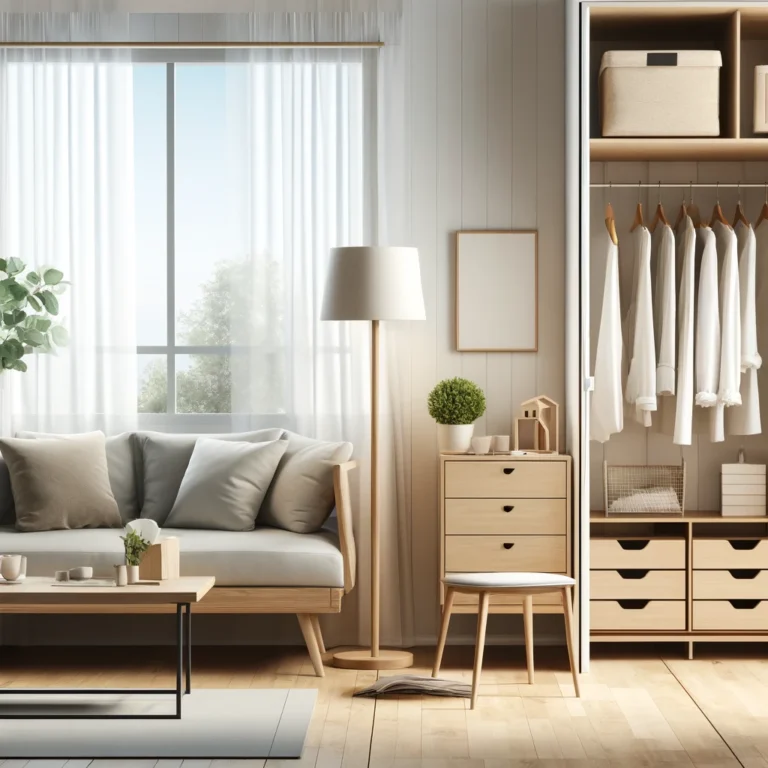n an era of constant connectivity, consumerism, and information overload, many individuals are turning to minimalism as a way to simplify their lives and find greater fulfillment. The minimalist lifestyle, which emphasizes living with less and prioritizing what truly matters, has gained significant popularity in recent years. This article explores the principles of minimalism, its benefits, and practical tips for adopting a minimalist lifestyle.
Understanding Minimalism
1. Defining Minimalism
Minimalism is a lifestyle choice that involves reducing physical possessions and eliminating unnecessary distractions to focus on what is truly important. It is about intentionally choosing to own fewer things, which can lead to a more meaningful and less cluttered life. Minimalism is not just about physical possessions but also about simplifying one’s schedule, relationships, and digital life.
2. Core Principles of Minimalism
- Intentionality: Making deliberate choices about what to keep and what to let go of, ensuring that everything in your life serves a purpose or brings joy.
- Decluttering: Removing excess items from your living space to create a more organized and serene environment.
- Mindfulness: Being present and mindful in your actions and decisions, focusing on quality over quantity.
- Sustainability: Emphasizing environmentally friendly practices by reducing waste and choosing sustainable products.
Benefits of a Minimalist Lifestyle
1. Reduced Stress and Anxiety
Clutter and excess can contribute to feelings of stress and overwhelm. By adopting a minimalist lifestyle, individuals can create a more serene and organized living environment, which can lead to reduced stress and anxiety. A decluttered space can promote a sense of calm and help individuals focus better.
2. Financial Freedom
Minimalism encourages mindful spending and prioritizing experiences over material possessions. By reducing the urge to buy unnecessary items, individuals can save money and achieve greater financial freedom. This financial flexibility can lead to less debt and more opportunities to invest in experiences that bring lasting happiness.
3. Improved Focus and Productivity
A minimalist lifestyle can enhance focus and productivity by eliminating distractions and creating a more organized environment. With fewer items to manage and less visual clutter, individuals can concentrate better on their tasks and goals. This can lead to improved efficiency and a greater sense of accomplishment.
4. Environmental Impact
Minimalism promotes sustainable living by encouraging the reduction of waste and the mindful consumption of resources. By choosing quality over quantity and opting for sustainable products, minimalists can reduce their environmental footprint and contribute to a healthier planet.
Practical Tips for Adopting Minimalism
1. Start Small
Begin your minimalist journey by decluttering one area of your home at a time. Start with a small space, such as a drawer or a closet, and gradually work your way through your entire living space. This approach makes the process more manageable and less overwhelming.
2. Assess Your Possessions
Evaluate each item you own and ask yourself whether it serves a purpose or brings you joy. If the answer is no, consider letting it go. Donate, sell, or recycle items that you no longer need. This practice can help you curate a collection of possessions that truly add value to your life.
3. Simplify Your Schedule
Minimalism is not just about physical possessions but also about how you spend your time. Simplify your schedule by prioritizing activities that align with your values and bring you joy. Learn to say no to commitments that do not serve your goals or well-being.
4. Digital Decluttering
In today’s digital age, minimalism also extends to your digital life. Organize your digital files, unsubscribe from unnecessary email lists, and limit your time on social media. Creating a digital environment free from clutter can enhance your focus and reduce information overload.
5. Practice Mindful Consumption
Before making a purchase, consider whether the item is necessary and whether it aligns with your minimalist values. Opt for high-quality, sustainable products that you genuinely need and will use. This practice can help you avoid impulse buying and contribute to a more sustainable lifestyle.
The minimalist lifestyle offers a pathway to a simpler, more intentional life. By focusing on what truly matters and eliminating excess, individuals can experience greater clarity, reduced stress, and enhanced well-being. Whether you are looking to declutter your physical space, simplify your schedule, or practice mindful consumption, minimalism provides practical tools and principles for achieving a more meaningful and fulfilling life. As more people embrace this lifestyle, the movement toward minimalism continues to grow, offering a refreshing alternative in a complex and fast-paced world.

